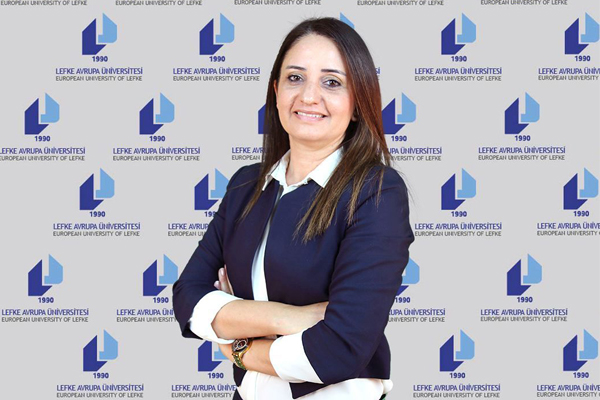EUL Academician Kaygısız: The Importance of Physiotherapy and Rehabilitation Practices Increases with Increasing Life Span

European University of Lefke (EUL) Physiotherapy and Rehabilitation Department Faculty Member Assoc. Prof. Dr. Beliz Belgen Kaygısız has provided information about the importance of physiotherapy and rehabilitation practices.
“Ageing is an inevitable growth and development process in chronological, biological, social, and psychological dimensions, starting from the moment of birth and continuing until death. The ageing process is progressive and is an irreversible process that occurs with the lack of function in the body systems of the person as time passes or the prolongation of the activity period of the systems.” Kaygısız emphasised that the rapid development of technology in the field of health has contributed greatly to the development of medical practices and stated that the number of elderly people has continued to increase with the decrease in deaths. Kaygısız: “Current reports of the World Health Organisation (WHO) indicate that as the level of development of countries increases, the healthy life expectancy of the population increases, and therefore the proportion of the elderly population continues to increase.”. Kaygısız also added that active and healthy ageing is defined as the process of optimising the health, participation, and safety opportunities that can be achieved by performing physical activities to improve the quality of life during the ageing process. Kaygısız, who stated that studies have shown that individuals over the age of 60 who adopt an active lifestyle are associated with healthy ageing, said: “In a longitudinal cohort study conducted between 1990 and 2008, individuals aged between 70 and 88 years were included, and it was found that the 8-year mortality rate was almost 50% lower in physically active individuals.”
Kaygısız continued as follows: “Physiotherapy and rehabilitation are all the practices performed to maximise the functional status of the individual in case of any disease or disability. The increase in the elderly population worldwide makes health promotion, preventive measures, and physiotherapy rehabilitation necessary. These can be disease-oriented therapeutic rehabilitation practices or preventive rehabilitation practices. Therapeutic rehabilitation practices are defined as a set of multidisciplinary assessment, diagnosis, and treatment approaches in order to regain lost functionality in the elderly, prevent possible loss of function, or increase functional capacity. The most important factor in elderly rehabilitation is that each individual has unique needs. A rehabilitation plan should be created individually. The objectives set for the individual are determined following the physiotherapy assessment, taking into account the individual’s physiological, social, economic, familial, social, cognitive, and social conditions and current possibilities. Preventive rehabilitation, on the other hand, includes assessment and treatment interventions aimed at enabling the elderly person to continue his/her life as independently as possible, to maintain the maximum functional level, and thus to ensure optimum quality of life. In preventive rehabilitation, factors such as creating a problem list for elderly individuals, setting short- and long-term goals for the solution of these problems, choosing the solution method, and determining the estimated time for each goal ensure the protection of the health of the individual. In addition, taking protective measures in the home, workplace, and social environment of the elderly should also be part of rehabilitation.
